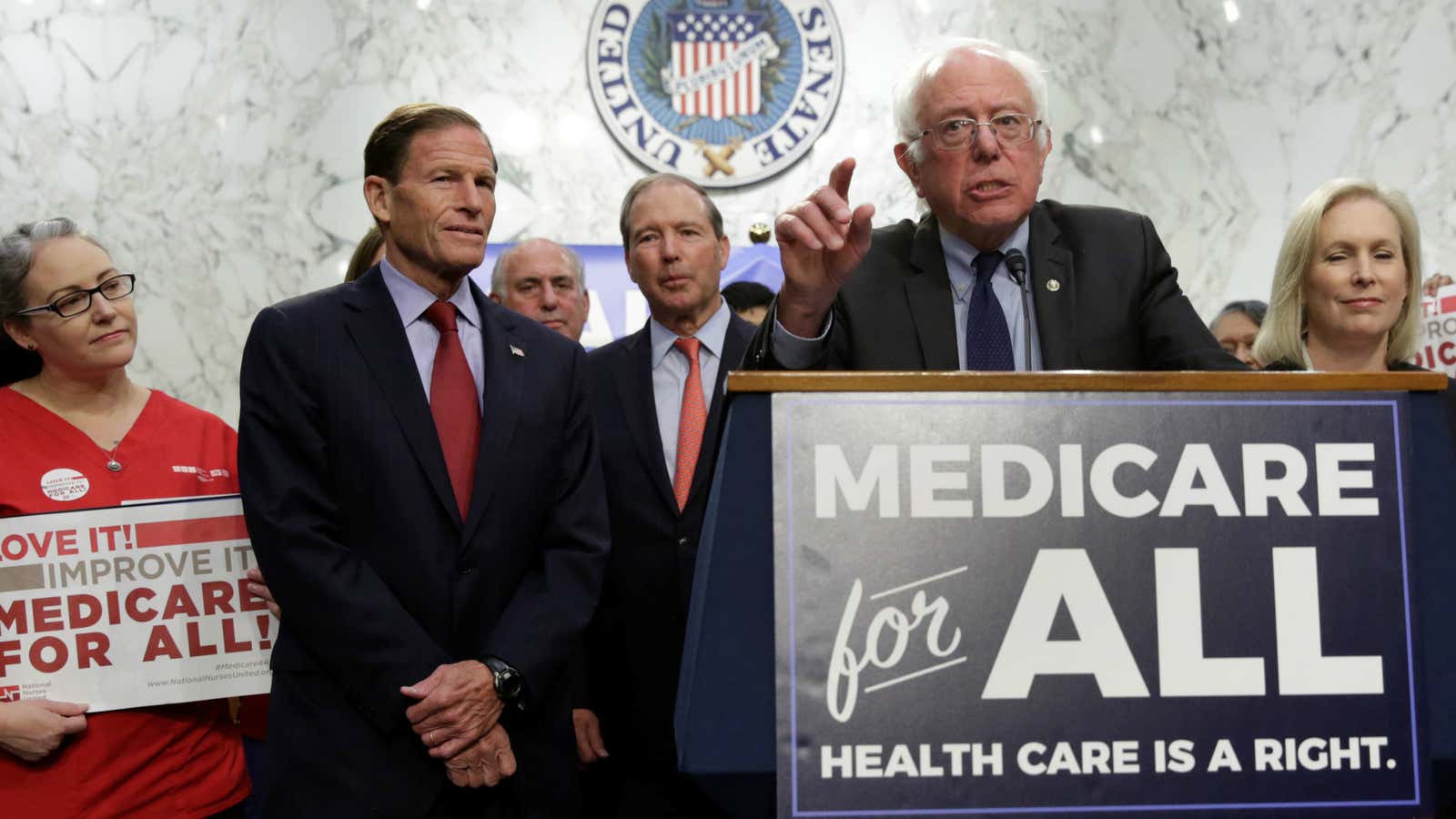The idea of universal health-care in the US has traditionally been an elusive one, a far reach in a nation that relies on private insurance companies to buttress its health system. But debate around the issue has gained energy since US senator Bernie Sanders made it the centerpiece of his unsuccessful bid for the White House
Now Sanders is gearing to introduce a piece of legislation proposing a single-payer system that has the backing of at least 15 Democrats. That, according to The Washington Post (paywall), is a record level of support for an idea that’s always been championed only by fringe members of the party.
The legislation has no chance of passing in a Republican-controlled congress, but that so many senate Democrats are willing to stick their names on it is a sign that more people are enamored with the idea. And that has people in some of America’s biggest pharmaceutical companies realizing they need to perform damage control—or risk major disruption.
As Allergan CEO Brenton Saunders warned at a Sept. 7 investor conference: “Because ultimately someone is going to be in the White House. Someone is going to be in Congress, someone is going to be somewhere and going to have to say, ‘Enough is enough. Let’s just change the whole system. Let’s go to one payer.'”
Allergan is one of the world’s biggest pharmaceutical companies and has a market value of more than $84 billion. The company, along with its industry brethren, is a key player in a US health-care system that gotten international recognition for being less than ideal compared to other nations. In its 2015 report on health (pdf) in the US, the Organization for Economic Cooperation and Development (OECD) characterized the US as failing to properly prevent and treat chronic illnesses (including obesity and diabetes), not covering low-income or people of color well enough, and having sky-high prices for life-saving drugs.
“Trust has eroded significantly between our industry and the public,” Saunders told investors. “And when you’re in a business that’s designed around improving or saving lives, there’s no reason we should have reputations that are worse than tobacco or oil companies…and yet we do.”
Proponents of a single-payer system have said the switch would neuter pharmaceutical companies’ ability to charge astronomical prices for drugs. It’s not a good look for the drug industry, and as long as Sanders is on the warpath, it doesn’t appear the industry’s image problems will dissipate anytime soon. Today (Sept. 13), the senator wrote a fiery op-ed in The New York Times (paywall) pushing for a health-care system overhaul.
“The reason that our health-care system is so outrageously expensive is that it is not designed to provide quality care to all in a cost-effective way,” Sanders wrote, “but to provide huge profits to the medical-industrial complex.”
